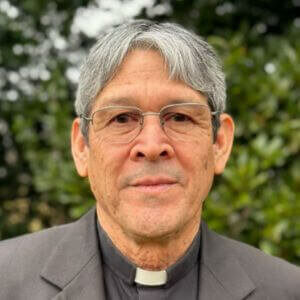As an introduction let us be clear: the book of Genesis is a sacred story or narrative grounded on faith; it is not history in the scientific sense in academic disciplines. Nonetheless, sacred stories are not less truthful than positive knowledge in the matters they proclaim, which are religious in nature.
Genesis is the Bible book of beginnings. Beginnings are organized in toledoth, a Hebrew word for generations. For some scholars, the book of Genesis is structured in ten toledoth, these could be short genealogies, large narratives, or a combination of both. The ten toledoth are: Heaven and Earth, Adam, Noah, Noah’s sons, Shem, Terah (Abraham), Ishmael, Isaac, Esau, and Jacob (theopolisinstitute.com).
There is a pattern in the toledoth’s narratives:
- God’s creative Word calling something to exist, be, become,
- the struggle of what God created to live fully according to its own nature, and
- God’s faithfulness for restoring life and order out of chaos.
The main religious confession of the ten toledoth is that the whole universe, including heaven and earth, the natural world, humankind, nations (cultures), and Israel (God’s chosen people), have been intentionally created and are sustained by God’s mercy. This paradigm has functioned for Jewish-Christian religious traditions and adopted for Western civilization for the last two millennia.
In the context of “God’s chosen people” a question for debate is to what degree God, as confessed in Genesis’ toledoth, is just an anthropomorphism—a distorted image of God. In other words, who is making who? Is God creating/choosing Israel? Or are Israelites creating a god?
Reading the story of Genesis’ toledoth shows that even by what we know of ancient near eastern cultures, God’s ethics in some narratives is questionable. Our answer to this question has implications in the way we read and interpret all sacred Scriptures.

The Rev. Dr. Alfredo Oviedo is an immigrant from Mexico. He values genuine devotion to God, compassion, respect for all people, and living in community. Church life includes being Roman Catholic until age 12, time in the Baptist tradition, and being an ELCA rostered minister since 2014. Alfredo’s family are Alejandrina (his wife of 48 years), children (Amparo, Miriam, Freddy, and Ana Alexandra-RIP), seven grandchildren, and two great-grandchildren. He has had a professional career in mental health, college religion instruction, and chaplaincy, as well as being a 17-year associate pastor at Grace, Hendersonville. He currently serves as Assistant to the Bishop in the NC Synod. His hobbies are reading, computers, and soccer. He is passionate about ethnic integration in local congregations and Christian ethics.
To Consider
1. Does the “God’s chosen people” concept imply by necessity that there are also “God’s non-chosen people”? Isn’t this the path to rationalize the dehumanization, oppression, and destruction of other human beings in the name of God?
Prayer
Gracious God, let the Holy Spirit that inspired these sacred texts be our guide to a clear reading and honest interpretation of the Scriptures. We ask this in the name of Christ, our Savior and Lord. Amen.
